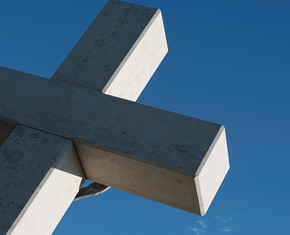The views expressed in our content reflect individual perspectives and do not represent the authoritative views of the Baha'i Faith.
The Baha’i administrative order, ordained by Baha’u’llah, is unique in concept and design, unlike anything the world has yet seen.
Shoghi Effendi explains this in the following passage:
A word should now be said regarding the theory on which this Administrative Order is based and the principle that must govern the operation of its chief institutions. It would be utterly misleading to attempt a comparison between this unique, this divinely-conceived Order and any of the diverse systems which the minds of men, at various periods of their history, have contrived for the government of human institutions …. The divers and ever-shifting systems of human polity, whether past or present, whether originating in the East or in the West, offer no adequate criterion wherewith to estimate the potency of its hidden virtues or to appraise the solidity of its foundations ….
This new-born Administrative Order incorporates within its structure certain elements which are to be found in each of the three recognized forms of secular government, without being in any sense a mere replica of any one of them, and without introducing within its machinery any of the objectionable features which they inherently possess. It blends and harmonizes, as no government fashioned by mortal hands has as yet accomplished, the salutary truths which each of these systems undoubtedly contains without vitiating the integrity of those God-given verities on which it is ultimately founded. – Shoghi Effendi, The World Order of Baha’u’llah, p. 152.
The Baha’i administrative order is designed to aid individuals and society as a whole to mirror increasingly God’s own attributes of love, mercy, and justice. As time passes, the system itself will become more effective as more and more people embrace the Baha’i Faith and endeavor to live up to its teachings, and then as world civilization gradually reflects the teachings of Baha’u’llah in their entirety.
In time, Baha’u’llah prophesied, the entire world will come to recognize his station as the Promised One of All Ages. The processes leading up to that day are twofold: first, the onward development of the Baha’i community and its institutions; and second, the necessary changes in world society, involving both tests and triumphs, that will prepare humanity to accept his revelation. That day will mark the establishment of the Most Great Peace and the Golden Age of human history.
Unity in Diversity
Baha’u’llah’s vision of unity does not imply cultural uniformity, nor does it involve the suppression of individual expression. On the contrary, a world united by basic moral and spiritual principles is one that can best guarantee personal fulfillment and ensure the unique contributions all societies and cultures can make to the whole. “Unity in diversity” is the guiding Baha’i principle.
This Baha’i vision for a new world order does not imply the destruction of legitimate loyalties, nor the assumption of centralized power by any entity:
Let there be no misgivings as to the animating purpose of the world-wide Law of Baha’u’llah. Far from aiming at the subversion of the existing foundations of society, it seeks to broaden its basis, to remold its institutions in a manner consonant with the needs of an ever-changing world. It can conflict with no legitimate allegiances, nor can it undermine essential loyalties. Its purpose is neither to stifle the flame of a sane and intelligent patriotism in men’s hearts, nor to abolish the system of national autonomy so essential if the evils of excessive centralization are to be avoided. It does not ignore, nor does it attempt to suppress, the diversity of ethnical origins, of climate, of history, of language and tradition, of thought and habit, that differentiate the peoples and nations of the world. It calls for a wider loyalty, for a larger aspiration than any that has animated the human race. It insists upon the subordination of national impulses and interests to the imperative claims of a unified world. It repudiates excessive centralization on one hand, and disclaims all attempts at uniformity on the other. Its watchword is unity in diversity such as Abdu’l-Baha Himself has explained:
“Consider the flowers of a garden. Though differing in kind, color, form and shape, yet, inasmuch as they are refreshed by the waters of one spring, revived by the breath of one wind, invigorated by the rays of one sun, this diversity increaseth their charm and addeth unto their beauty. How unpleasing to the eye if all the flowers and plants, the leaves and blossoms, the fruit, the branches and the trees of that garden were all of the same shape and color! Diversity of hues, form and shape enricheth and adorneth the garden, and heighteneth the effect thereof. In like manner, when divers shades of thought, temperament and character, are brought together under the power and influence of one central agency, the beauty and glory of human perfection will be revealed and made manifest. Naught but the celestial potency of the Word of God, which ruleth and transcendeth the realities of all things, is capable of harmonizing the divergent thoughts, sentiments, ideas and convictions of the children of men.”
The call of Baha’u’llah is primarily directed against all forms of provincialism, all insularities and prejudices. If long-cherished ideals and time-honored institutions, if certain social assumptions and religious formulae have ceased to promote the welfare of the generality of mankind, if they no longer minister to the needs of a continually evolving humanity, let them be swept away and relegated to the limbo of obsolescent and forgotten doctrines. Why should these, in a world subject to the immutable law of change and decay, be exempt from the deterioration that must needs overtake every human institution? For legal standards, political and economic theories are solely designed to safeguard the interests of humanity as a whole, and not humanity to be crucified for the preservation of the integrity of any particular law or doctrine. – Shoghi Effendi, The World Order of Baha’u’llah, pp. 41-42.
You May Also Like
Comments

















By Kenneth E. Bowers
To Israel He was neither more nor less than the incarnation of the “Everlasting Father,” the “Lord of Hosts” come down “with ten thousands of saints”; to Christendom Christ returned “in the glory of the Father”; to Shí‘ah Islám the return of the Imám Ḥusayn; to Sunní Islám the descent of the “Spirit of God” (Jesus Christ); to the Zoroastrians the ...promised Sháh-Bahrám; to the Hindus the reincarnation of Krishna; to the Buddhists the fifth Buddha. The Kitab-I-Aqdas Notes 160